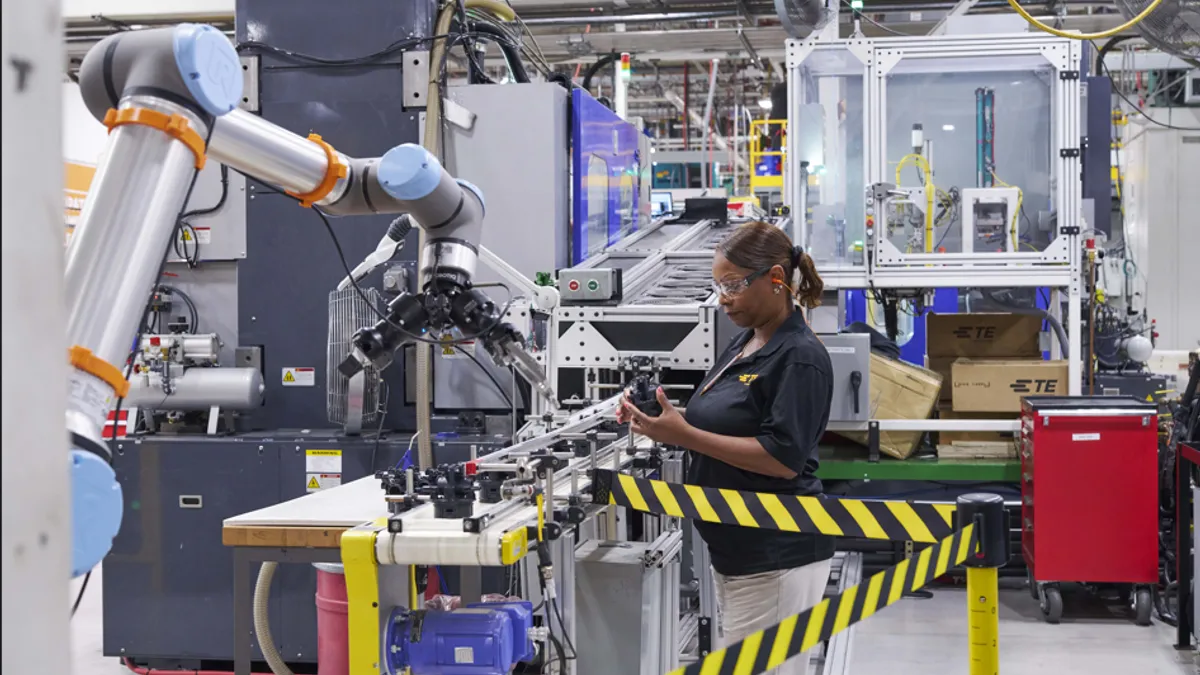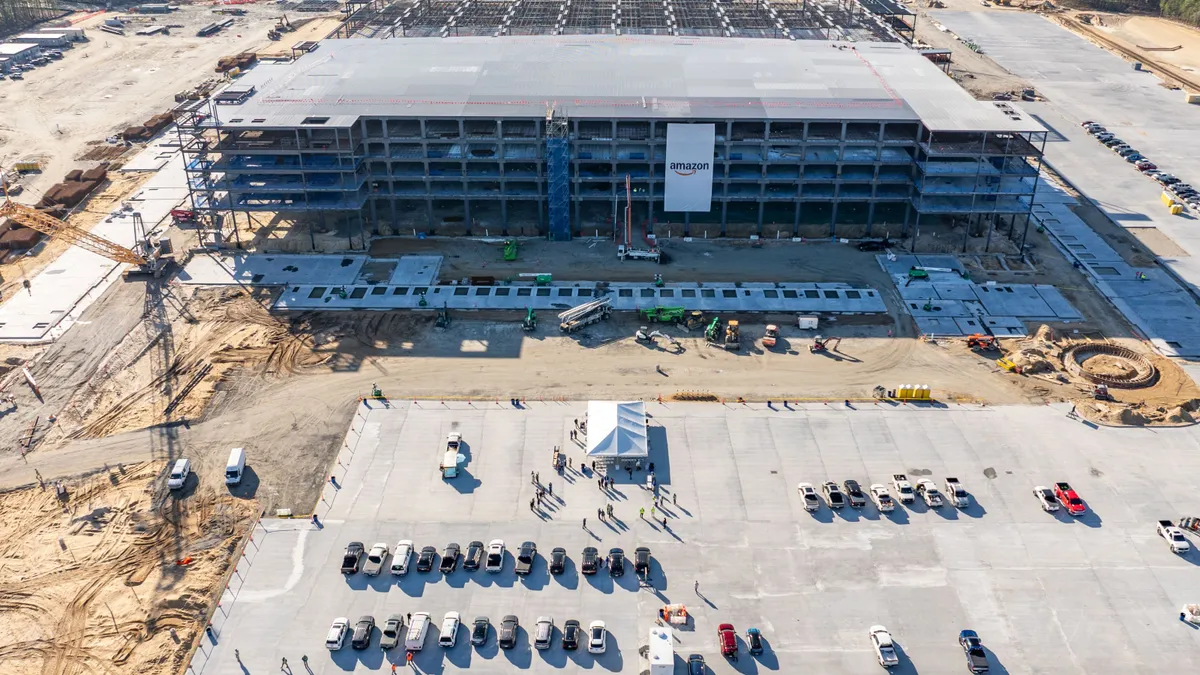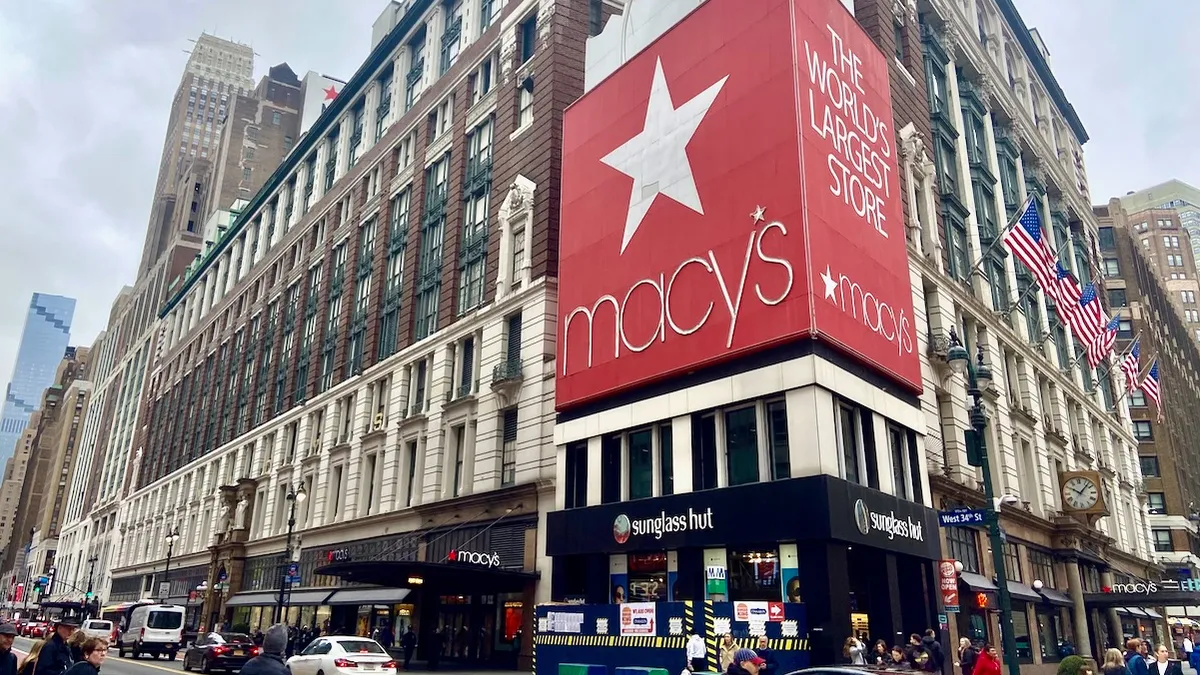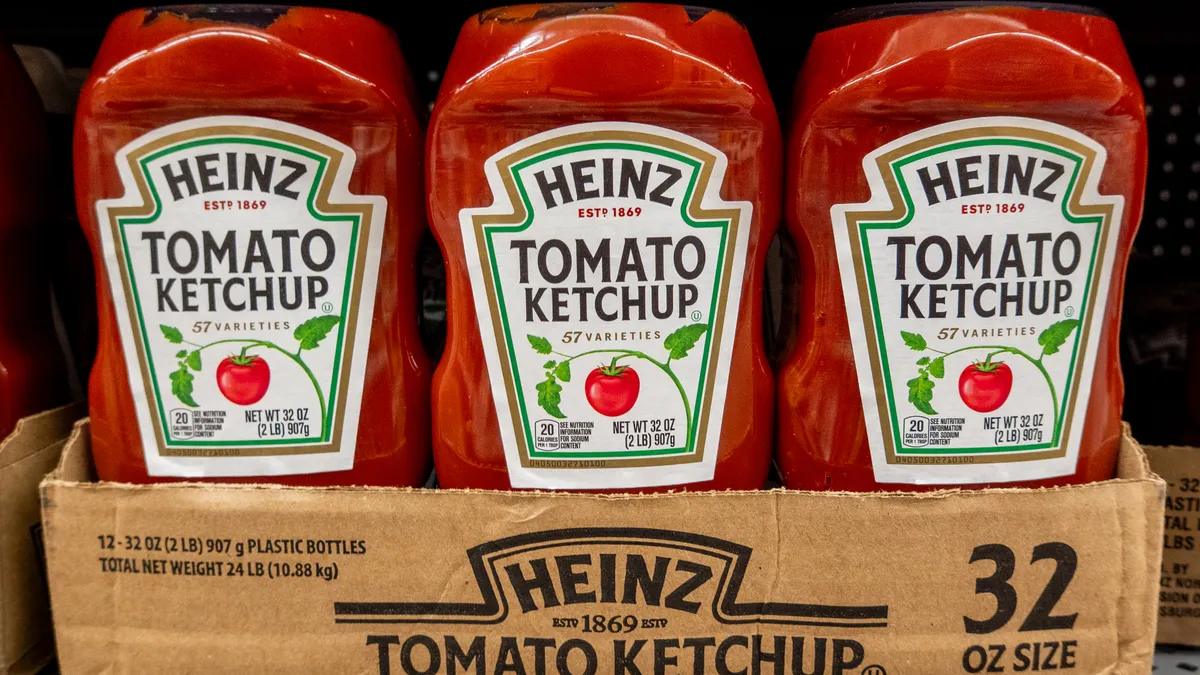Supply chains are constantly changing as new rules, technologies, resources and market trends transform operations. Here's a skim of the week's indexes, technology announcements, expansions and M&As from around the web.
In Case You Missed It
- Trade is set to change radically under Trump. Here are four big issues to follow.
- Of the top 20 freight forwarders, only one can instantly provide an online quote.
- FedEx Fulfillment is here, ready to compete with Amazon for small vendors.
Market Snapshot
The U.S. Department of Transportation released its Freight Transportation Services Index for December Wednesday, which measures the for-hire transportation industry's shipments, tons and ton-miles carried. The TSI grew 1% in December from the previous month.
While the month-by-month rise is due to general economic growth, according to the report, consecutive monthly increases represent a larger positive trend for for-hire shipments since the trough of the recession in April 2009. Over the past five years, for-hire freight shipments have grown by 8.2%, and in the past 10 years, the TSI has recorded a 12.6% increase.
In the short-term, the December figures also cap a year of recovery for the transportation industry. The DOT remarks 2015 was particularly tough, as all modes (except for truck and pipeline) decreased in volume. However by the end of 2016, and including the 2015 figures, all modes but rail and water were recording growth. The freight transportation industry is starting 2017 on much more solid ground than it was standing on last January.
Meanwhile, recent trade figures may give the Trump administration something to tweet about. The U.S. trade deficit grew to its widest gap since 2012, or $502.25 billion per figures reported by the Department of Commerce.
The largest gap in terms of goods traded was with China, at $347 billion, although Japan, Germany and Mexico each recorded a $60+ billion gap as well, according to The Wall Street Journal. The Trump administration has repeatedly criticized the U.S. trade deficit, and is reportedly seeking to push a rebalancing through a combination of domestic and trade policies.
Ports, which rely heavily on both imports and exports to remain profitable, may experience the most direct effect of global trade patterns. Alternatively, container growth handled by global port operators may tell a different story. Despite expectations of decreased global trade in 2016, DP World reportedly handled 3.2% more containers for a 63.7 million total TEU last year. The port operator estimates the industry was expected to grow 1.3% last year.
Technically Speaking
Auto-makers are not hitting the brakes in the race to develop self-driving cars, and that can be a problem for public safety.
With that in mind, California requires auto-makers testing self-driving cars on public roads to report the total miles driven and "disengagements" — instances where the autonomous technology fails or the test driver must take control of the vehicle — to track the safety and progress of such vehicles, providing a unique insight into the otherwise guarded technology.
The most recent reports were released this week, revealing Google's Waymo is currently the leading technology in terms of disengagements per mile driven, according to The Wall Street Journal. Waymo vehicles drove 635,858 miles over the past year in California, but recording only 124 disengagements. For comparison, in 2015 the company logged 424,331 miles driven with 341 disengagements.
Currently, BMW, Bosch, General Motor's Cruise, Delphi, Ford, Honda, Nissan, Mercedes-Benz, Tesla and Volkswagen are all conducting tests in the state. Uber, which is also testing the technology, refused to file reports and relocated its testing to Arizona instead, according to the Journal.
Yet fewer disengagements are not necessarily better. After all, finding faults in a system is the most difficult part of a testing process, as Google itself recognized in 2015. "Our objective is not to minimize disengagements; rather, it is to gather, while operating safely, as much data as possible to enable us to improve our self-driving system," the company wrote in its 2015.
In addition, the feasibility of self-driving cars is not limited to the technology, but also its responsiveness to human error. If self-driving vehicles are to share the road with human drivers, the autonomous vehicles must be able to not just disengage but respond effectively to adverse circumstances — as shown by a recent DOT report on Tesla's Model S 2016 crash with a tractor-trailer, which was attributed to a human test driver's complacency due to the vehicle's autopilot features.
In other news, Ontario-based CX North America recently released a new mobile app to help carriers track freight shipments, vehicle utilization and enhance load and capacity management; Maersk Line is using Riverbed' SteelCentral technology to monitor its IT infrastructure; and FiestaMart announced it would employ Logile's WMS and Enterprise Labor Planning solutions.
Breaking Ground
Port news revealed how important international trade is to terminal operations, and how volatile trade relations can impact business decisions.
When two Florida ports signed a deal with Cuban officials to facilitate exports to the island-nation, Governor Rick Snyder threatened to pull the ports' funding. Given no choice, the ports backed out from the deal, and Cuban officials turned to the Port of Mobile, in Alabama, for a similar deal.
More recently, American Airlines opened an office in Havana to prepare for increased traffic after the Obama administration announced a de-icing of relations and travel deregulation. However, given the restrictions were lifted by executive order, the Trump administration could easily reverse any such policies. Nonetheless, American Airlines made its intention to take the risk clear with its new office, and by scheduling 13 daily flights to Cuba from three U.S. cities, according to ABC News.
In addition, the Financial Times reports Tilbury, the U.K.'s third-largest container terminal, is investing $1 billion to build a new global port, as the threat of Brexit and a new Amazon fulfillment center nearby is expected to increase the need for local port services as supply chains seek to offset tariff costs by increasing logistic efficiency.
But the supply-demand relationship between ports and warehouses can go the other way, too. East Coast ports are generally seeing an increase in volume, so much so that even a boom in industrial construction has yet to satiate warehouse demand in some cities, such as Savannah, GA, according to a JOC.com report. The report found 3.3 million square feet of industrial real estate was built around the Port of Savannah last year, but industrial vacancy rates remain extremely low. To help increase supply, then, the Georgia Ports Authority is selling 500 more acres for industrial development.
In other news, Amazon announced it would build two new fulfillment centers in Southern California, bringing the company's regional warehouse count to 10 and adding 2,00 new jobs, per a press release.
Mergers & Analysis
CMA CGM has a new CEO, although the shipping line's leadership is staying in the family. American Shipper reports Rodolphe Saadé will lead the third-largest shipping line, as his father and former CEO Jacques Saadé will step down but remain chairman of the board. It's a fitting time to change leadership for the French line, as 2017 promises to usher in a new age of operations for maritime carriers.
Cherry Hill, NJ-based NFI announced a new joint venture in Asia with Cargo Services Far East: NFI Global Cargo Services. The new venture seeks to help NFI's North American clients improve their distributions worldwide, but primarily in Asia.
Meanwhile, Greensboro-based logistics and freight firm Epes Logistics Services acquired Charlotte-based freight forwarder Login Logistics for undisclosed terms. Triad Business Journal reports the acquisition is the fifth in five years for Epes, as the $115 million company expands its geographic footprint.
In other news, fleet service provider Comdata and ELD-provider KeepTrucking announced a partnership to bring Comdata's MyFleet Program up to speed with federal regulations ahead of full ELD-implementation, Overdrive reports.






















